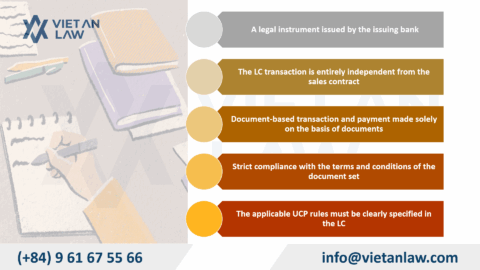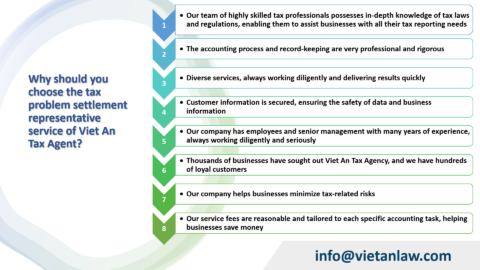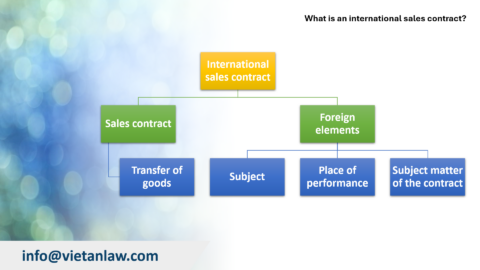Void contracts and the legal consequences of invalid contracts are always issues that receive a lot of attention. Accordingly, after the contract is signed, there are many cases where the contract is invalidated for many different reasons such as violating prohibitions of the law and violating the conditions of the contract. Therefore, if the parties have carried out some contents of the contract must now fulfill the obligation to refund what has been received when the contract is void.
When the contract does not meet the conditions prescribed by law, the contract will be void. Void contracts are understood as transactions that express the will of the participating parties but violate the conditions of validity of the contract as stipulated in the civil code.
The legal consequences of an invalid contract are understood as the consequences arising under the provisions of law in the case of an invalid contract. Void contracts not only directly affect the subjects participating in the transaction but also directly negatively affect society. The legal consequences of an invalid contract are stipulated in Article 131 of the 2015 Civil Code, specifically as follows:
In Clause 1, Article 131 of the 2015 Civil Code, there are provisions on the legal consequences of invalid contracts as follows: “Invalid civil transactions do not give rise to, change or terminate the civil rights and obligations of parties from the time the transaction is established.”
Thus, it can be seen that a void contract is a contract that has no legal value at the time of signing, therefore does not give rise to the rights and obligations of the parties. When a contract is invalid, it means that the content relating to invalid contracts is no longer legally valid, so the parties in the contract will not be bound to each other in terms of rights and obligations.
In Clause 2, Article 131 of the 2015 Civil Code, it is stipulated: “2. When a civil transaction is invalid, the parties restore the original state and return to each other what they have received. In cases where it cannot be returned in kind, the value will be returned in cash.”
This regulation contains two very clear contents:
For newly established invalid contracts that have not yet been performed, the parties only need to immediately stop performing the contract. At that time, the parties have not yet received each other’s rights and benefits, so no refund obligation arises. For invalid contracts that are being performed or have been completed, restoring the original state requires the parties to return to each other what they received from the contract. Then the following cases may occur:
The following cases may occur with assets such as damaged assets, decreased value, assets that have been repaired, built, or even created to increase value, specifically:
Pursuant to this regulation, when the contract is invalid, a refund in kind will be given priority over a refund in cash. Refund is only generally regulated under the 2015 Civil Code, which can be simply understood as the parties will return everything they have received from each other to ensure the performance of the contract when the contract is invalid. However, in reality, it can be seen that there are many commercial contracts whose object is services. If a contract whose object is services is invalid, there is no specified regulation to refund the “services”.
Article 131 of the 2015 Civil Code does not stipulate when the refund of what has been received when the contract is invalid will be carried out, especially in cases where both parties must repay each other. This will make it difficult to apply the law in practice.
Reality shows that regulations on returning what has been received do not ensure benefits for subjects, especially in housing purchase and sale contracts, land use rights, or asset loan contracts. For the property buyer, returning the property is often a loss. Even if they receive the full amount of money back, they cannot buy real estate with that money.
In case the asset has increased in value when transferred, when it is returned to the owner there will be trouble in paying the increased value of that asset. Especially when the receiving party refuses to pay the increased costs due to repairing or renovating the property because the other party arbitrarily increased the value of the property. Currently, the law does not have specific regulations on this issue.
Practice shows that in many cases the transferee of land use rights has built a house or solid structure, so when the contract is declared invalid, the Court forces the transferee to dismantle the structure on the land to return the original land status to the transferor. Although restoring the original status quo in this case is possible, it is not economically effective, especially when the additional assets are of great value.
How the amount of money that must be refunded in the case of not returning what has been received when the contract is invalidated in kind should be determined is not currently regulated by law. The provisions in Clause 2, Article 131 of the 2015 Civil Code do not indicate in which cases the parties “are unable to repay in kind”, thus causing difficulties in the implementation process, and at the same time, many cases may appear. In case one of the parties takes advantage of this regulation when they do not want to return the object to the other party.
The provision that the parties restore the original state is impossible in cases where the subject matter of the contract is work or services that have already been performed. In this case, if the regulation “cannot be returned in kind, it must be returned in money” is applied, then the regulation on not recognizing the rights and obligations of the parties is meaningless.
Thus, it can be seen that restoring the original state will first rely on the ownership regime to return to each other what has been received, however, in cases where the object of the void contract is services, benefits, or income, the refund is very complicated, other bases need to be applied such as the provision of benefits without legal basis, compensation for damages outside the contract.
This situation shows that the regulations on returning what has been received when the contract is invalid need to be improved and made more feasible to suit reality and create conditions for the contract to fully play its role nowadays.
Customers who need advice on civil law or the consequences of invalid contracts, please contact Viet An Law Firm for the most effective support!




